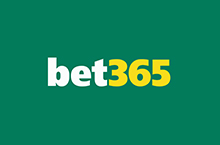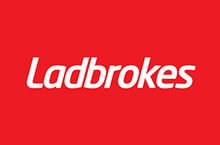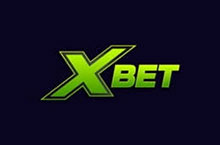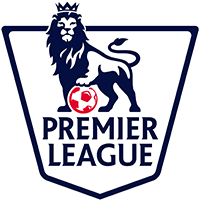Most people associate the term Bookmaker with a person who accepts bets on sports events or runs a betting shop. However, the bookmakers’ task is not restricted to taking bets only. Besides, the term does not necessarily refer to an individual who accepts wagers on sports events. There are large organizations which assume this role as well and service millions of people throughout the globe.
The bookmakers’ role is much greater, since they are the ones to calculate and put the odds on offer. Additionally, bookmakers are responsible for paying out winning bets. It’s important to note that bookmakers do not benefit so much from the bets themselves as they do from acting as mediators – they are the ones who offer the markets to bet on. In certain cases, they even buy or “lay off” bets from one another. This happens predominantly when bets are sizeable and carry a higher risk for the bookmakers.
Inexperienced punters should bear in mind that bookmakers are just the ones to set the odds and determine the prices of different markets and put them on offer. Just because a bookmaker has set high odds for a specific football team for example, does not mean the team will win. Most times, the odds are adjusted in such a way that the bookmakers themselves generate profits. As you can imagine, no one can know for sure what the outcome of a given sports event will be. This applies to both brick-and-mortar and web-based sports betting operators. Read on for more exhaustive information on bookmaking.
Find the best bookmakers here
What is Bookmaking?
Let us begin with a brief history lesson. Bookmaking is known as one of the oldest professions in the world as it dates back to ancient Rome. Back then, it was a common practice to place bets on the outcome of chariot races or gladiatorial matches. However, the term itself was coined and used for the first time in the late 18th century in England. The Englishman Harry Ogden is largely considered to be the first bookmaker in the world.
Now, we’ll proceed by explaining in more details what the term “bookmaking” refers to exactly. Broadly speaking, bookmaker’s main occupation is to determine the odds of various sports events. The odds themselves, reflect the probability of something to happen. For example, odds may mirror the chances of a given sports team or athlete to win (or lose) a game or match. The higher the odds are, the greater the team’s chances to win. However, high odds also are synonymous with small returns on winning bets.
Setting the odds only partially covers the term “bookmaking”. Bookmakers function as traders of odds of different sports markets. What is a “market” you will ask? Well, bets can be placed on who the winner of a specific event will be. But predictions can be made in regard to who will score the first goal in a match, what the result of a halftime will be or which tennis player will score more points in the first set. All of these are markets you can place your bets on. It is the bookmaker’s job to put these markets on offer and set the odds for them.
Naturally, the bookmakers are also the ones to receive bets and pay off winnings. In many cases, they allow for bets to be placed on the outcomes of political events (such as elections for instance) or popular television shows. Betting on award ceremonies like the Oscars is also possible.
Those of you who are relatively new to the world of sports betting, need to take several things into consideration. Don’t forget the odds, provided by the bookmakers rarely reflect the “true” values of bets. If they did, the bookmakers would not generate sufficient profits. Naturally, there are cases when the odds come close to the statistical expectations for a given event’s outcome. But most times there can be major discrepancies between the bookmakers’ odds and the final result of a sports game.
This can easily be explained with the fact that bookmakers compile and publish the odds they’ve set, weeks before a specific sports event takes place. In some instances, when future bets or “outrights” are placed, odds are set half a year in advance, sometimes even more. As you can suppose, a lot can happen in such a long time span.
What’s important to remember is that odds are set on the basis of the public opinion and statistics. Bookmakers are not at all interested in the outcome of sports events – their sole purpose is to collect money from punters who bet on different events. Once the game is over, the winners are being paid, while the losers… well, you get the picture. The bookmakers simply function as mediators and to a great extent resemble stockbrokers. In return for their services, they charge punters with fees called “overrounds” or “vigorish”. You will find more information on this in the “Balanced Books” section. Now let’s proceed by explaining how odds are being set.
Determining the Odds
The previous section calls for an explanation on how odds are set. Bookmakers, especially large organizations, typically, work with a team of experts who set the odds on the basis of their previous experience, statistics and public opinion. But often odds are based purely on intuition and personal opinion. The team of experts proceeds to formulate prices for the odds. This activity is called “pricing the market” and is of crucial importance for the bookmakers.
Online bookmakers especially, offer the earliest odds you can hope for. Such early odds are typically priced-up. As was said above, the odds provided by the bookmakers, rarely reflect the true value of a bet. If they did, the betting operators would not profit. The odds are always modified in favor of the bookmaker. Those, who produce the earliest odds by definition have the largest margins. The margin represents the difference between the odds, set by the bookmaker and the “fair” odds. It is safe to say, the margins assume the role of buffers. Their main function is to minimize the risk of incorrect pricing-up of odds, which will result in losses for the bookmakers. The greater the discrepancy between the actual odds and the bookmaker’s odds, the smaller the liability for the bookmaker is. The margin is calculated by summing up the reciprocal of the odds.
It would be best to demonstrate this with the coin toss example. Imagine you and one of your friends decide to bet on the outcome of a coin toss. You place $10 on Heads and your friend places another $10 on Tails. It matters not whether Heads or Tails come up – either way, both of you hold equal advantage. The chances for each outcome are 50%. This is called a 100% market and the margin is equal to zero.
However, if your friend decides to seek profit, the total percentage of the market will exceed 100%. If the percentage was 115, the friend will accumulate 15% net profit, in case they win that is. The amount by which the percentage increases, reflects the size of the margin your friend (or the bookmaker) holds over you. It all has to do with bookmakers running balanced books. You will find more information on this below.
Balanced Books
It was already mentioned that bookmakers’ main priority is to ensure they generate profits by adjusting the odds in their favor.
Modifying the odds is one thing, but bookmakers also tend to charge punters for collecting their bets. A fee is imposed on all bets, it matters not whether they’re losing or winning ones. The fee goes by many names – “vigorish”, “the vig”, “overround”, “juice”, “margin”. This fee can best be explained with an example.
Two sports fans decide to make a bet at even odds on two competing teams. Each person’s bet is equal to $100. So if one of them wins, their return would be equal to $200. The loser wouldn’t generate any profits.
This will not be the case, if the two fans decide to use the services of a bookmaker. First of all, the odds wouldn’t have been even to begin with. Let’s imagine the bookmaker have set the odds for the game at 10:11. This means that each sports fan would be required to bet $110 to earn a return of $100. The bookmaker will then collect a total of $220 instead of the $200 in the first example. The additional $20 in fact, function as the bookmaker’s commission for accepting the bets. The winning punter’s profit will be equal to $210 (his original bet of $110 + $100 net profit). The loser will part with their $110 altogether, while the bookmaker will keep the $10 as net profit, thanks to the vigorish.
But collecting a commission is not the only way the bookmakers generate profits and balance their books. Sometimes when the outcome of a given game is extremely easy to predict, a point spread is created. Its chief purpose is to prevent all punters from placing their bets on the sure winner. The point spread is designed to artificially tip the scales in favor of the underdog. As you can see, the goal is to even out both teams’ chances of winning in order to generate equal interest on punters’ behalf. Otherwise, if everyone places their bets on the winners, the bookmakers will be forced to part with massive amounts of money to pay out the winnings.
So this is how a point spread works. The bookmaker will adjust the point spread at 5, for example. This means that the favorites need to score a minimum of six goals in order to emerge as winners. As you can imagine, scoring six goals in a single game is not so easy. The game ending in 4:1 for the favorites will result in a loss for everyone who had placed bets on them. It turns out, the point spread balances things out perfectly for the bookmakers.
How are Winning Bets Settled?
To settle the winning bets, bookmakers typically employ either decimal or fractional odds. If the latter are used the number 1 is added to the odds – the goal is to include the amount punters have staked in the return they should collect. It all depends on the type of bet, you’ve placed. For instance, if you’ve placed a “Each-Way” bet, the amount you’ve wagered will be calculated separately from the returns. Below, we will cover the most popular types of bet and explain how each one is settled.
Let’s begin with single bets. Imagine you have wagered $100 at odds of 9:2. In case you win, your returns will be calculated on the basis of the following formula: $100x(9/2 +1) = $100×5.5=$550. Then again, the winnings of a single Each-Way bet are calculated in a similar fashion. Again, you’ve placed $100 on an Each-Way single, the odds are 11:4, while the total stake’s amount is equal to $200. The calculations will go as follows: $100x (11/4+1) = $100×3.75 = $375 – these are your winnings for a win bet. However, with Each-Way wagers there are the so-called Place bets, which generate profits only when the team you’ve bet on finish first or at another predetermined position or “place”. In such cases, winnings are typically calculated on the basis of a fixed proportion of the win odds. In this instance, the odds for the place are 1/5. The formula will slightly change: $100 x (11/20+1) = $100 x 1.55 = $155. It turns out if your team wins, you will collect a total of $530 ($375 + $155).
Calculating returns from parlays is a bit more complicated. A method called “Win to Win, Place to Place” is employed. The bet is subdivided into two parts – a win accumulator and a place accumulator. We will demonstrate with an example for a Treble parlay, which consists of three selections. Again we’ll use a nice round number, so let’s imagine you’ve staked $100 with winners at 3:1, 4:6 and 11:4. The formula goes as follows: $100 x (3/1 +1) x (4/6 +1) x (11/4 +1) = $2500. Winnings of fivefold, sixfold etc. accumulators are settled in the same manner.
If you’re not good at maths, you may consider using the Bet Calculators, which are available at many online bookmakers’ homepages. It will save you lots of time, not to mention the Bet Calculator is much more reliable and precise.
Online Sports Betting
Now that you’ve learned more on bookmakers, their practices and the ways bets are settled, you may consider placing a bet at one of the many web-based betting providers. Below, you will find a short list of four reputable betting websites, where you can safely place your wagers. Each one is completely legitimate and has obtained a license to operate legally. Just make sure the laws of the country you reside in, allow for online wagering. Under some jurisdictions online betting on sports is considered an illegal activity.
Bet365
 This is probably the most popular web-based sports bookmaker in the world. There are plenty of reasons why Bet365 enjoys such a tremendous success among punters. First of all, it offers an impressive number of sports markets at competitive odds. Then again, both new and existing members are granted generous bonuses, designed especially to boost their chances of winning. A number of appealing ongoing promotions are always on offer.
This is probably the most popular web-based sports bookmaker in the world. There are plenty of reasons why Bet365 enjoys such a tremendous success among punters. First of all, it offers an impressive number of sports markets at competitive odds. Then again, both new and existing members are granted generous bonuses, designed especially to boost their chances of winning. A number of appealing ongoing promotions are always on offer.
The number of sports events covered by Bet365, is also rather extensive. The options range from popular sports like basketball, golf, football and tennis to less conventional alternatives such as bandy, futsal and trotting. Bets on greyhounds and horse races are also accepted. In addition to its other merits, the bookmaker offers some interesting and most of all useful features, like In-Play Betting. The latter allows for bets to be placed on sports which are in progress. In such cases, bets are accepted from the beginning till the very end of the game. Prestigious sports events are streamed in real time thanks to the Live Streaming feature. As the bookmaker is available in a mobile format, punters can keep track of the latest odds updates and place bets on the go.
Bet365 is licensed and regulated by the Gibraltar Gambling Commission.
Ladbrokes
 Ladbrokes is known as one of the oldest bookmakers in the industry. Believe it or not, the company was founded in 1886 but adopted the Ladbrokes brand name in 1902. Lots have changed since its inception – Ladbrokes went on to become one of the most successful and recognizable names in the sports betting world. When Ladbrokes went online, it has quickly established itself as a leading web-based betting provider. The bookmaker’s success can be explained with its fairness to punters and the exhaustive selection of great markets and odds it offers. But that’s not nearly all – Ladbrokes has a number of amazing functionalities whose purpose is to further increase bettors’ entertainment value.
Ladbrokes is known as one of the oldest bookmakers in the industry. Believe it or not, the company was founded in 1886 but adopted the Ladbrokes brand name in 1902. Lots have changed since its inception – Ladbrokes went on to become one of the most successful and recognizable names in the sports betting world. When Ladbrokes went online, it has quickly established itself as a leading web-based betting provider. The bookmaker’s success can be explained with its fairness to punters and the exhaustive selection of great markets and odds it offers. But that’s not nearly all – Ladbrokes has a number of amazing functionalities whose purpose is to further increase bettors’ entertainment value.
The website offers more than adequate coverage of all major leagues, including NFL, the ATP World Finals, NHL, MLB, NBA and naturally the European Football Championship. Those of you, who are interested in racing, can place bets on horse or greyhound races. The options are endless.
Ladbrokes offers a Live Streaming feature and accepts bets on games in progress. If you’re willing to bet while on the move, you can access the website directly from your mobile device’s browser or download and install the sportsbook’s mobile application. Ladbrokes provides a secure and fair betting environment to all punters who register with an account. The bookmaker operates under a license, issued by the Gambling Commissions of Great Britain and Gibraltar.
SportingBet
 SportingBet is yet another favorite stop for enthusiastic sports fans. The bookmaker is part of the SportingBet Group and is completely reliable – its license was issued by the Maltese Gaming Authority. In addition to its plethora of markets and odds, SportingBet provides punters with the opportunity to keep track of the latest odds, as these are updated on regular basis. The In-Play feature is also available.
SportingBet is yet another favorite stop for enthusiastic sports fans. The bookmaker is part of the SportingBet Group and is completely reliable – its license was issued by the Maltese Gaming Authority. In addition to its plethora of markets and odds, SportingBet provides punters with the opportunity to keep track of the latest odds, as these are updated on regular basis. The In-Play feature is also available.
SportingBet covers a great number of sports, the most popular options being soccer, volleyball, hockey, basketball and tennis. The website’s interface allows for smooth and trouble-free navigation. Those who register with an account and place their first wager at SportingBet, are greeted with a generous welcome bonus. The bookmaker lives up to the highest standards in the industry and keeps up with the times – it, too, offers a mobile app. The latter stands out with an improved bet slip for quicker single and multiple bets and is compatible with iOS 7.0+ devices.
William Hill
 William Hill is among UK’s top online bookmakers, which is not surprising considering the fact its reputation for fairness and diversity is widely-spread. The website’s layout is simplified, while the interface is easy to use. You’d hardly experience any troubles in finding what you’re looking for. Like other renowned online betting providers, William Hill, too, is licensed and regulated by the Gambling Commission of Gibraltar.
William Hill is among UK’s top online bookmakers, which is not surprising considering the fact its reputation for fairness and diversity is widely-spread. The website’s layout is simplified, while the interface is easy to use. You’d hardly experience any troubles in finding what you’re looking for. Like other renowned online betting providers, William Hill, too, is licensed and regulated by the Gambling Commission of Gibraltar.
In-Play betting is possible at William Hill, but there is also a separate section, where the latest In-Play schedules are published. This way, punters can keep an eye on all sports events that are about to begin on any given day. William Hill’s advantages do not end here – inexperienced punters can make use of the betting tips that are published on the website. Additionally, horse and greyhounds races podcasts are available, but one can also keep track of sports events via the Live Streaming feature. If punters are faced with a problem, they can turn to William Hill’s courteous support team. Customer support is available 24/7 via Live Chat but you can reach the team over the telephone or send them an email with your inquiries.




 Premier League
Premier League La Liga
La Liga Bundesliga
Bundesliga Serie A
Serie A Ligue 1
Ligue 1 UCL
UCL



